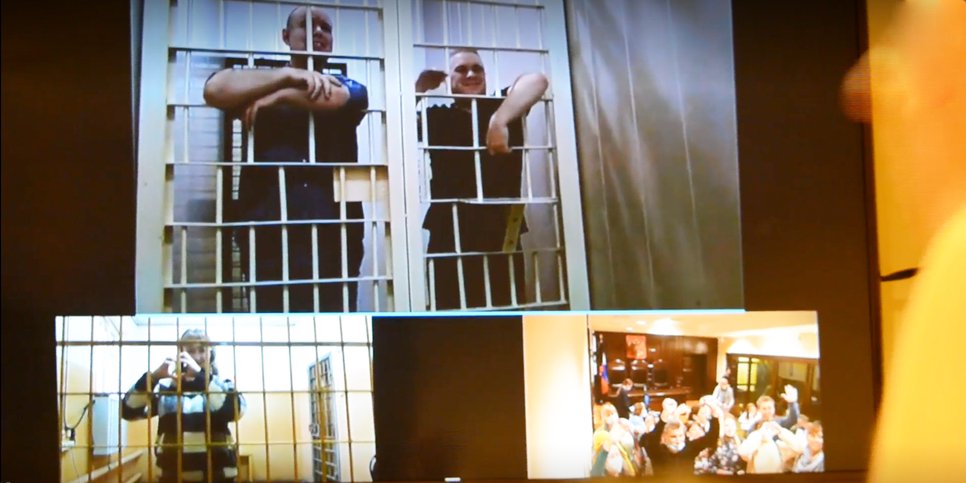Believers from Astrakhan during one of the court hearings held via video conferencing (2022)
Believers from Astrakhan during one of the court hearings held via video conferencing (2022)
The Court of Cassation Slightly Softened the Brutal Conviction of Four Jehovah's Witnesses From Astrakhan
Astrakhan RegionText updated February 24, 2023
On December 22, 2022, the Fourth General Jurisdiction Court of Cassation, presided over by Judge Rustem Asanov, insignificantly reduced the sentence on believers Rustam Diarov, Sergey Klikunov and Yevgeniy Ivanov, sentenced to 8 years in a penal colony, and Olga Ivanova (wife of Yevgeniy), sentenced to 3.5 years in a penal colony. Now, after serving their sentence, they will be able to choose a settlement for residence, but they will be banned from leaving it. Previously, they were forbidden to leave Astrakhan.
The rest of the verdict was left unchanged, and the cassation appeals were not satisfied. The state prosecutor requested to toughen the punishment, and only verbally, without stating this in written objections to the cassation appeal. The session of the Court of Cassation was held via video-conferencing. Believers participated in the hearings while in the colonies.
In fact, the court found Astrakhan residents guilty of extremism because they believe in Jehovah God. In itself, being part of the international canonical structure of Jehovah's Witnesses, including believers organized in different groups all over the world, which the Russian Supreme Court had not assessed or declared extremist, does not constitute a crime.
In his cassation appeal Yevgeniy Ivanov stressed the absurdity of the charges against him: "The verdict and the appeal decision do not contain any extremist statements, especially those aimed at inciting enmity and hatred." His lawyer also noted: "Yevgeniy was found guilty of a crime against the foundations of the state and state security, although Jehovah's Witnesses are politically neutral, and he is not a socially dangerous person." "All the witnesses questioned in the case indicated that there were no signs of extremism in my words, actions and motives," added Sergey Klikunov.
A recent decision of the European Court states that "believers demonstrate their desire to adhere strictly to the teachings of the religion they profess, and their right to do so is guaranteed by Article 9 of the European Convention" (§ 172).



